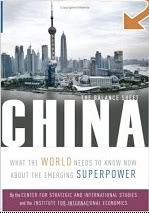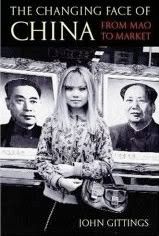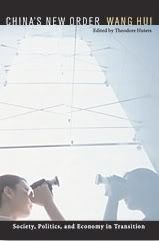A US-China arms race on the final frontier
Mar 28, 2007
By Malou Innocent
While some have pooh-poohed Putin's admonition, claiming high oil profits must have gone to his head, the United States may want to heed this "arms race" warning, for if a new arms race does not transpire today between Washington and Moscow, it may transpire tomorrow between Washington and Beijing.
Reacting to Putin's charge, US Secretary of Defense Robert M Gates assured the world that "one Cold War is enough". But Russia is not the only great power the US must worry about. China opposes all theater and national missile defense (NMD) programs. As far back as 2001, China's United Nations envoy for disarmament affairs, Hu Xiaodi, argued that NMD "is, in essence, a disguised form of unilateral nuclear-arms expansion, which will severely hinder the international arms-control and disarmament process and even trigger off a new round of arms race".
And former Chinese president Jiang Zemin affirmed, "Any attempt to break the existing international strategic balance by developing sophisticated weapons systems cannot but spark new rounds of an arms race and jeopardize world peace." China's disapproval was justified, since an ability to intercept ballistic missiles would deprive it of its nuclear retaliatory capability.
Chinese officials have openly voiced opposition to US machinations in the past. But recently, they have grown noticeably more restrained. In fact, not one high-level Chinese official has spoken out against America's recent plan to use Eastern Europe as an anti-ballistic-missile base. Is China simply allowing Russia to speak on its behalf? Why have the Chinese shifted from strident opposition to muted acquiescence? One reason may be their desire to dodge US criticism of their own expanding military.
On January 11, China successfully destroyed one of its orbiting weather satellites using ground-based medium-range ballistic missiles. While the launch drew sharp criticism from various nations that wished they had simply been consulted prior to the test, US opposition was based on the principle of its own primacy. Gordon Johndroe, spokesman for the National Security Council, argued that China's test was "inconsistent with the spirit of cooperation".
This statement was inspired by the White House's own National Space Policy, which declared that the US should have unimpeded supremacy in space, and will undermine other great powers from usurping this freedom. Not surprisingly, Chinese Major-General Peng Guangqian said the US was making too big a deal out of the test.
But a "big deal" may be warranted. China's defense industry has developed in large part thanks to the country's space program. With regards to military technology, space programs go beyond simple aeronautics and computer-simulation models. They enable countries to develop wind-tunnel and jet-propulsion test facilities that are crucial to weapons development, including destroyers, other ships, and fighter aircraft.
In fact, many of America's own military and engineering innovations were born out of its space industry. Because China's aerospace program has military applications, and the US already has numerous reconnaissance satellites, a future US-China arms race in the final frontier could be more plausible than not.
But just as tensions from the missile test were dissipating, a spokesman for the National People's Congress announced this month that China will boost its defense spending by 17.8%, bringing total spending to US$44.94 billion for fiscal 2007. While the real spending figure is in dispute, because of inadequate accounting measures and intentional obfuscation, US military experts agree that China's double-digit increases over the past decade support the likelihood of a future arms race between great powers.
US government officials, preoccupied with conflicts and force requirements in other theaters, are finally growing more concerned about China's strategic ambitions and whether or not those ambitions will depreciate America's global power. The United States may want to use its Cold War history as a frame of reference, drawing useful lessons for its encounter with the rise of the next up-and-coming superpower.
Summing up, the way in which the United States chooses to respond to China's rise will have profound implications on the path China takes: whether it decides to be a strategic competitor or a stable strategic partner.
While Defense Secretary Gates is correct in stating that "one Cold War is enough", America's actions, not its words, will matter more to the Chinese. Consequently, if a missile-defense system in Eastern Europe continues as planned, the US may be stepping toward the threshold of a new cold war with a brand-new enemy.***
Malou Innocent is a defense and foreign policy research assistant based in Washington, DC.
(Copyright 2007 Malou Innocent.)
Link




0 Comments:
Post a Comment
Subscribe to Post Comments [Atom]
<< Home